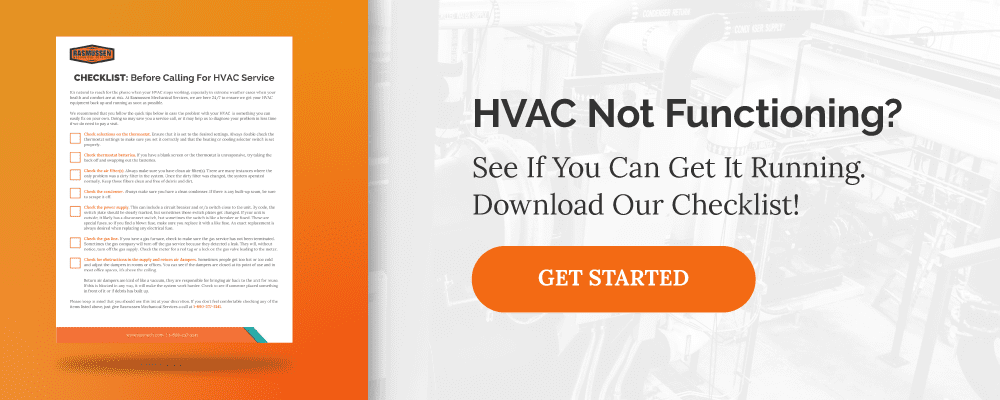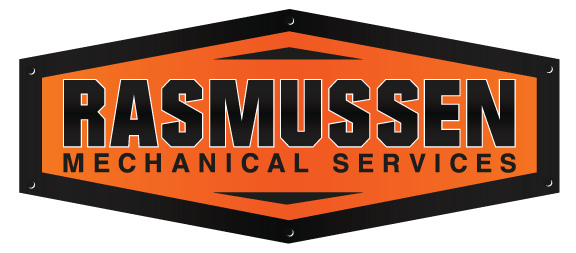Whether your HVAC system is for a large commercial facility or within your home, it’s important to take care of your equipment. As seasons change, your HVAC equipment becomes more vulnerable and will require frequent maintenance. This is because the system must change its essential function from heating to cooling or vice versa with the shift in the weather. It is also important to note that each season requires different maintenance practices. Here are some simple DIY instructions to help extend the life and efficiency of your equipment. With these basic tasks completed, you can end the suffering of inefficient heating and cooling and high utility bills.
Did you know #HVAC systems can last over 15 years? See how to make it happen! Click To TweetReplace That Filter
Do you know the easiest way to make a big difference for your heating and cooling system without breaking the bank? It’s done by simply cleaning or changing your unit’s air filters.
As time goes on, dust and debris can easily build up causing your system to work harder than normal. This adds stress to your HVAC system, not to mention uses up tremendous amounts of energy to keep the air circulating. This is especially true after a harsh winter when systems may be running on a consistent basis or in summer months as cotton in the air collects and makes its way to your unit.
Most electronic models require thorough cleaning and a filter change every 1-3 months. However, some of the newer models require cleaning and replaceable filters that need to be changed less regularly. Be sure to understand the needs of your system by checking the manual for best practices. Although these manufacturer recommendations are typically accurate, you should check your filter every few weeks for collected dust or debris. Our expert HVAC technicians recommend more consistent checks as you may need to replace or change it sooner than the manufacturer’s suggestions. This is especially true after facility cleanings, energy-draining winters, or high pollen summer months.
When changing your filter, follow these four steps:
- Step 1: Go to your A/C and write down the filter sizes for your system. If you want to go the extra mile, you can also check out the manufacturer’s recommendations in the operation manual or perform a search of the model number on the web.
- Step 2: Purchase your filters based on the size, efficiency, and acceptable particle levels. Pro tip: Filters are often cheaper when you buy them in bulk. Purchase filters to have on hand when your monthly or quarterly replace date comes around. Store these in your home or business.
- Step 3: Set a reminder in your phone or calendar to switch out your filters. Our expert technicians recommend checking the level of dust and debris every few weeks during the key months mentioned above. Your home or facility’s filters should be replaced when dirty. Regardless of visible wear and tear, you should change your filters at least once per quarter.
- Step 4: Repeat steps 1 thru through 3 as needed.
Ventilation is Key
Ventilation plays a major role in keeping your home or facility comfortable, however, this component of the HVAC acronym is often overlooked. Although most people credit the AC or the heat for their comfort level, it would not be possible without proper ventilation.
Successful ventilation circulates fresh air, whether hot or cold, throughout your facility. For that reason, it is crucial that your ventilation system is kept up. This means ensuring your units are clean, open, and unblocked.
Outdoors:
Make sure outdoor air supply ducts are clear of plants and wildlife. When blocked, your AC is unable to properly take in the air it needs, leading to poor circulation. Be sure to spray down your units with a hose to clean the system of any debris.
[Want to learn more about how you can maintain your facility’s HVAC system? Check out our Money-Saving HVAC Inspection Checklist for Property Owners.]
Indoors:
Leave proper clearance for your return air grills. In commercial spaces, these grills are typically perforated. In your home, this grill is usually located in the living room or the largest space in your house. Ensure that air is able to properly flow in and out of each vent and return.
Restrict airflow to areas that will be unoccupied for long amounts of time, for example, a classroom during summer break. This can be done with a VRF HVAC unit, or by closing dampers.
Closing the damper will redirect the airflow and will help save money by keeping cool or heated air moving to the spaces that truly require it. If you do this, be sure to make a note in your HVAC log and set a date on your calendar or in your phone to open the airflow back up. If missed, complaints that one specific area is scorching hot in the summer will come in. You’ll be able to solve that problem in a jiffy if you’ve noted that airflow is restricted.
Like any piece of mechanical equipment, your ventilation system can use a thorough cleaning. Dust and debris collect in your air ducts through your returns. Needless to say, this makes your system less efficient. By cleaning your air ducts, you’ll not only remove these foreign particles increasing efficiency, but you’ll also remove allergens, irritants, and odors. After proper cleaning, your air quality will be at its maximum potential.
Finally, apply foil tape to any leaks on your ventilation. By keeping everything in this system airtight, more warm or cold air will be circulated to the areas in your facility that are in need and increase the efficiency of your overall system.
Want to know how to reduce stress on your #HVAC system? Take a look: Click To TweetClean Those Coils
This is necessary specifically in warmer weather and if your HVAC systems are outside. This equipment has small grooves within their coils that can easily get packed with debris, pollens, and vegetation. The more build-up, the worse off the system will be. A simple fix? Take a hose to it. Spray down your outdoor HVAC system to remove pollen and other debris.
All these recommendations are easy things you can do yourself within your home or business. This will help you save time, money, and improve the efficiency of your HVAC. By following these simple stress-reducing tips, you’ll low the need for maintenance and replacing the HVAC equipment you have, all while making your system last longer. However, we know not all problems can be solved so easily. If your HVAC system is causing trouble, be sure to reach out to Rasmussen Mechanical Services for all your commercial HVAC maintenance needs. Our HVAC technicians are dedicated to providing timely and professional service for our customers.
This article was originally published on July 18, 2018. It was updated on August 20, 2019.




